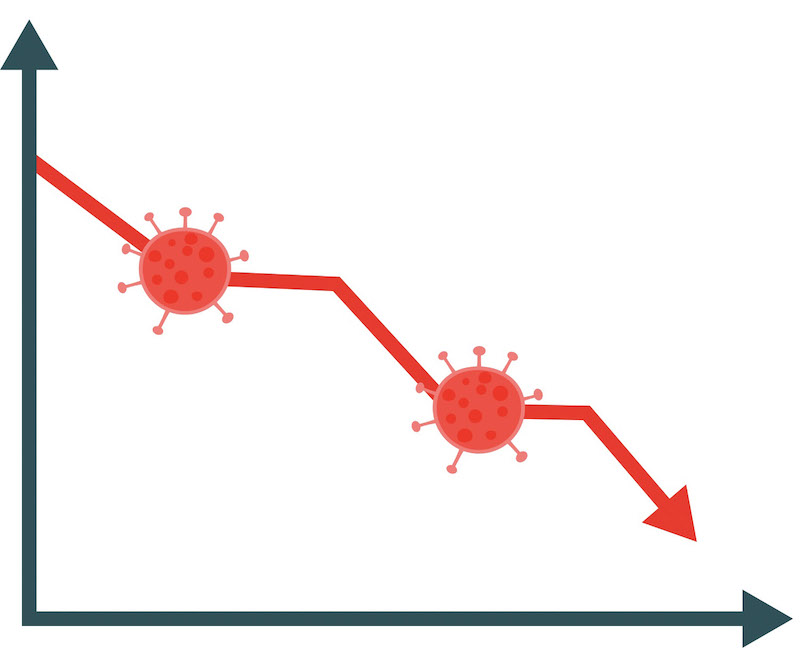Wall Street Journal’s (WSJ) writer, Jo Craven McGinty, asks the question “Why don’t Covid-19 vaccinations last longer? Measles shots are good for life, chickenpox immunizations protect for 10 to 20 years, and tetanus jabs last a decade or more.”

Meanwhile, our country’s health officials are deciding whether to give authority for Covid-19 boosters to vaccinated adults as soon as six months after their initial inoculations. The info below is a synopsis of our writer’s answer to the above question in The Wall Street Journal.
McGinty tells us, “The goal of a vaccine is to provide the protection afforded by natural infection, but without the risk of serious illness or death.”
The three tiers of defense then include:
1. Full protection against infection and transmission
2. Protection against serious illness and transmission
3. Protection against serious illness only
The vaccine’s effectiveness depends on:
1. The size of the immune response
2. The speed at which the antibodies, protective proteins that fight infection, decay
3. Whether the virus (or bacteria) have the ability to mutate; and
4. The infection’s location
The protection threshold is the immunity level that is sufficient to stay well. For every virus or bacteria this level varies, as does the variance in how it is determined. T-cells, the lymph system’s white blood cells, contribute to this protection measurement, but antibodies are more measurable. McGinty explains, “You track antibody decline over time, and if you know the threshold of protection, you can calculate durability of protection. With Covid, we don’t know.”
The Pfizer and Moderna messenger RNA Covid-19 vaccines have no virus in them. Consequently, they work differently from such shots as tetanus, diphtheria, measles, and chickenpox where we knew the vaccinations’ threshold protection.
Complicating this whole situation is the fact that viruses (and bacteria) that escape the body’s immune response by mutating or changing form (as in the Delta mutation) are even harder to control. The above-mentioned shots of tetanus, diphtheria, measles, and chickenpox hardly mutate at all. There are, however, eight known variants of SARS-CoV-2, the virus that causes Covid-19. In the case of our yearly influenza vaccinations with their changing mutations, vaccines are offered for at least 6 months of protection. They contain the researched leading strain or strains of the particular year they are offered.
For many respiratory infections, herd immunity only lasts for a “modest period of time” according to McGinty. It depends on how fast the virus changes and how fast the immunity weakens.
McGinty also mentions that one major problem with dealing with the Covid-19 is that “coronaviruses replicate in both the upper and lower respiratory tracts. We have good circulation in our lungs and body, but not on the surfaces of our nostrils.”
She continues, “We can block severe disease because there are antibodies in the lower respiratory tract. But the risk of low-level infections in the upper respiratory tract can persist.”
It seems that in moving forward, Covid-19 vaccines will have to be updated to fight the virus’ variants. Researchers at Imperial College, London say that the next generation of vaccines “might also focus on enhancing immunity in the moist surfaces of the nose and lungs.”
In the meantime, patience is called for as we await a possible booster shot.




